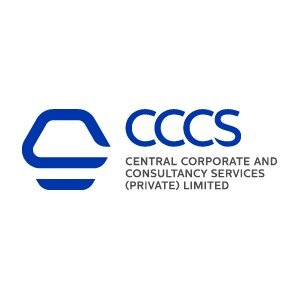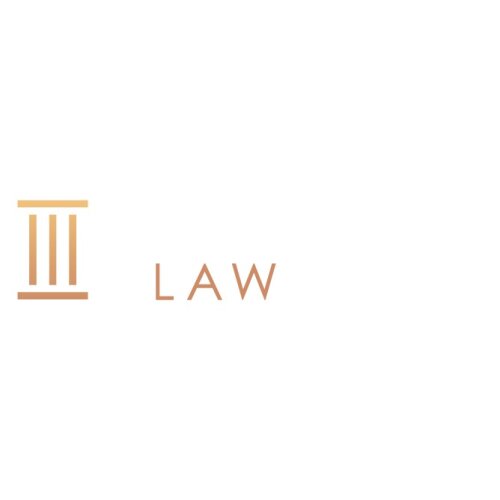Best Energy Regulatory Law Lawyers in Sri Lanka
Share your needs with us, get contacted by law firms.
Free. Takes 2 min.
Or refine your search by selecting a city:
List of the best lawyers in Sri Lanka
About Energy Regulatory Law in Sri Lanka
Energy Regulatory Law in Sri Lanka refers to the body of laws, regulations, and policies that govern the production, transmission, distribution, and consumption of energy within the country. It covers the legal frameworks used to regulate energy resources such as electricity, petroleum, natural gas, and renewable energy sources. The main goals are to ensure reliable and safe energy supply, encourage sustainable use of resources, protect consumer interests, and promote competition and investment in the energy sector. Key regulatory functions are managed by governmental authorities that set standards and monitor compliance among industry operators.
Why You May Need a Lawyer
People and businesses often need legal assistance in Energy Regulatory Law for a variety of reasons:
- Business Licensing and Permits: Establishing new energy projects or businesses requires compliance with a range of legal requirements, including licenses and permits that can be complex.
- Regulatory Compliance: Ensuring ongoing operations meet local energy regulations and standards is critical to avoid penalties or shutdowns.
- Tariff and Pricing Disputes: Legal support is important for disputes involving energy tariffs, billing, or contracts between producers, distributors, and consumers.
- Environmental Compliance: Energy projects are subject to environmental laws, and legal advice is needed to meet Environmental Impact Assessment (EIA) requirements.
- Land Acquisition and Right of Way: Building energy infrastructure often involves acquiring land or securing usage rights, which can give rise to legal challenges.
- Investment and Joint Ventures: Foreign and local investments in energy projects must comply with regulations that govern ownership, operation, and profit-sharing.
- Renewable Energy Projects: New legal guidelines continue to emerge for solar, wind, and other renewable sources, requiring up-to-date legal advice.
Local Laws Overview
Sri Lanka’s energy sector is mainly governed by the Sri Lanka Electricity Act No. 20 of 2009, along with amendments, and is regulated primarily by the Public Utilities Commission of Sri Lanka (PUCSL). The Sri Lanka Sustainable Energy Authority Act No. 35 of 2007 provides a framework for energy conservation and the promotion of renewable energy. Other key laws include the Petroleum Resources Act and various regulations under the Ministry of Power and Energy. These laws govern key processes such as:
- Granting and renewing energy licenses
- Setting and reviewing tariffs and charges
- Protecting consumer rights and promoting fair competition
- Monitoring safety, quality, and reliability of energy supply
- Promoting sustainable and renewable energy initiatives
- Ensuring environmental standards are met for energy projects
Frequently Asked Questions
What authorities regulate the energy sector in Sri Lanka?
The main regulatory body is the Public Utilities Commission of Sri Lanka (PUCSL), which oversees electricity and related utilities. The Sri Lanka Sustainable Energy Authority handles renewable energy initiatives and energy conservation projects. The Ministry of Power and Energy also plays a role in policy making and sector oversight.
What are the main legal requirements for starting an energy project?
Key requirements include obtaining the necessary licenses or permits from PUCSL or relevant authorities, completing Environmental Impact Assessments for certain projects, complying with technical standards, and meeting safety regulations. Legal advice can help navigate the specific requirements for your project type.
Can foreign entities invest in energy projects in Sri Lanka?
Yes, foreign investment is permitted in the energy sector, particularly for renewable energy projects. However, investors must comply with local laws, obtain proper approvals, and adhere to any foreign ownership restrictions that may apply to certain types of infrastructure or resources.
How are energy tariffs determined?
Energy tariffs are regulated by PUCSL, which sets prices based on factors like generation cost, transmission, and distribution costs, as well as government policies. Tariffs are periodically reviewed to reflect market conditions and ensure fair pricing.
What legal protections exist for energy consumers?
Consumers are protected by laws and regulations enforced by PUCSL, which ensure fair tariffs, reliable service, and recourse for disputes or complaints. Energy suppliers are required to meet quality and safety standards, and consumers can file complaints with regulatory bodies if their rights are violated.
What environmental laws apply to energy projects?
Most energy projects must comply with the National Environmental Act and often need to undergo Environmental Impact Assessments (EIA). The Sri Lanka Sustainable Energy Authority Act also sets out obligations for sustainable practices in energy development.
Are there incentives for renewable energy development?
Yes, Sri Lanka provides incentives such as tax concessions, reduced import duties on renewable energy equipment, and premium tariffs for power generated from renewable sources. These policies are designed to encourage investment in solar, wind, and other renewable projects.
What steps are involved in resolving an energy-related dispute?
Disputes can often be resolved through negotiation between parties. If negotiation fails, formal complaints can be made to PUCSL or other relevant authorities. Legal proceedings may also be initiated through the courts or arbitration, depending on the contract and nature of the dispute.
What is the process for obtaining a license to generate electricity?
Applicants must submit detailed technical, financial, and environmental documentation to PUCSL or the appropriate authority. The process often includes public consultations, compliance checks, and environmental clearances before a license is granted.
How does land acquisition work for energy infrastructure?
Land needed for energy projects may be acquired through direct negotiation or, in some cases, compulsory acquisition under national law. There are procedures for compensation, public consultation, and legal recourse for affected landowners.
Additional Resources
Several resources are available to those seeking information or assistance in energy regulatory matters:
- Public Utilities Commission of Sri Lanka (PUCSL): The main regulatory authority for electricity and utilities.
- Sri Lanka Sustainable Energy Authority: Focuses on renewable energy, energy efficiency, and energy conservation.
- Ministry of Power and Energy: Sets policy and strategic direction for the sector.
- Central Environmental Authority (CEA): Regulates environmental standards and impact assessments.
- Chamber of Commerce and Industry: Offers support and advocacy for businesses operating in the energy sector.
- Legal Aid Commissions and Professional Law Firms: Offer legal advice and representation for individuals and companies.
Next Steps
If you need legal assistance in Energy Regulatory Law in Sri Lanka:
- Gather all relevant documents about your project or issue, including contracts, permits, correspondence, and any official notices.
- Identify the specific area where you need help, such as licensing, compliance, dispute resolution, or investment structuring.
- Consult a qualified lawyer or law firm experienced in energy and regulatory matters. Look for professionals who are familiar with the latest local laws and have experience with regulatory bodies.
- Arrange an initial consultation to discuss your situation and learn about your legal options.
- Engage your legal advisor to handle communications and submissions with relevant authorities, ensuring your interests are protected.
Lawzana helps you find the best lawyers and law firms in Sri Lanka through a curated and pre-screened list of qualified legal professionals. Our platform offers rankings and detailed profiles of attorneys and law firms, allowing you to compare based on practice areas, including Energy Regulatory Law, experience, and client feedback.
Each profile includes a description of the firm's areas of practice, client reviews, team members and partners, year of establishment, spoken languages, office locations, contact information, social media presence, and any published articles or resources. Most firms on our platform speak English and are experienced in both local and international legal matters.
Get a quote from top-rated law firms in Sri Lanka — quickly, securely, and without unnecessary hassle.
Disclaimer:
The information provided on this page is for general informational purposes only and does not constitute legal advice. While we strive to ensure the accuracy and relevance of the content, legal information may change over time, and interpretations of the law can vary. You should always consult with a qualified legal professional for advice specific to your situation.
We disclaim all liability for actions taken or not taken based on the content of this page. If you believe any information is incorrect or outdated, please contact us, and we will review and update it where appropriate.
Browse energy regulatory law law firms by city in Sri Lanka
Refine your search by selecting a city.

















